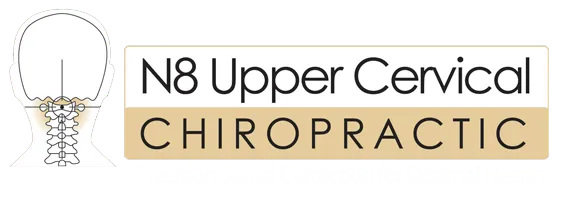
is when you have the sensation that you are moving when you are not. The feeling would best be described as sensing that you are spinning or that the room around you is spinning. This false sense of motion is among the top medical complaints. This sensation that you are moving is called subjective vertigo and the sensation that the things around you are moving is called objective vertigo. Lightheadedness is not the same feeling. Vertigo does not have many causes and is not contagious.
What Is Happening in the Body with Vertigo Symptoms?
Vertigo is put into two different categories: peripheral and central.
Peripheral: This is a result of a problem in the inner ear or the vestibular nerve. This nerve connects the inner ear and the brain.
Central: This happens when there is a problem with the brain (especially the cerebellum) and central nervous system. The cerebellum coordinates movements and helps with balance.
Causes of Vertigo
Benign paroxysmal positional vertigo (BPPV): This is the most common kind of vertigo and may last from 15 seconds to a few minutes. It can be described as a sudden attack of vertigo and is often triggered moving the head’s position, like when you roll over in bed. This is because calcium crystals get moved into the wrong part of the ear and are floating in the semicircular canals of the ear.
Acute peripheral vestibulopathy (APV): This condition happens when there is inflammation of the inner ear causing a sudden onset of vertigo.
Meniere’s disease: This is an inner ear disorder that also includes vertigo, tinnitus, and hearing loss. People who suffer from Meniere’s experience sudden onset of severe vertigo and hearing loss that comes and goes, with periods of no symptoms at all in between. It could be related to viral infections, a head injury, allergies, or inherited genes.
Acoustic neuroma: This is a rare and unusual cause of vertigo connected to a tumor of the nerve tissue of the inner ear. Along with vertigo, you could have ringing in one ear and hearing loss.
Perilymphatic fistula: abnormal communication between the middle and inner ear
Otosclerosis: an abnormal bone growth in the middle ear
Cholesteatoma erosion: erosion caused by a cyst in the inner ear
Stroke
To learn more about the connection between head and neck injuries and vertigo download our complimentary e-book How to Naturally Relieve Vertigo without Drugs by clicking the image below:
Multiple sclerosis: The onset is usually sudden and may also involve the inability of the eyes to move past the midline toward the nose.
A migraine: a severe form of a headache that may bring about vertigo
A tumor in the cerebellum
Diabetes: Complications from diabetes can cause hardening of the arteries, which leads to a decrease in blood flow to the brain.
Anxiety or panic attacks: This is a possible cause of vertigo. Stress may worsen the symptoms, but it does not cause them.
Changes in hormones during pregnancy: When accompanied by low blood sugar, women often feel the sensation of vertigo.
Head trauma and neck injury
Inflammation of the inner ear: This is called labyrinthitis or vestibular neuritis and is known for the sudden onset of vertigo. Hearing loss could also be involved. Usually this is caused by a bacterial or viral infection in the inner ear, and it may last days until the inflammation calms down.
Vertigo Symptoms
Vertigo has been described as being very similar to motion sickness or a sensation that the room is spinning. You may feel as though you are off-balance and lacking equilibrium. Vertigo varies in its duration from minutes to hours, and symptoms can be chronic or episodic. Symptoms can include the following:
Nausea
Vomiting
Stumbling while trying to walk
Abnormal headaches
Sweating
Abnormal eye movements
Visual disturbances
Weakness
Trouble speaking
Decreased consciousness
Hearing loss
Tinnitus -- ringing in the ears
Testing for Vertigo
If you visit your doctor because of vertigo issues, may order an MRI or CT scan to be sure nothing is wrong. He may also use one of the following tests:
Head-thrust test: While looking at your doctor’s nose, he will make a quick head movement to the side to see if you have correct eye movement.
Fukuda-Unterberger test: You will be asked to march in place with your eyes closed and the doctor will observe whether you begin to lean from side to side.
Dix-Hallpike test: While sitting on the exam table, you’re quickly lowered so you are lying down with your head slightly to the left or right. Your eye movements will be examined to learn more about your vertigo.
Romberg test: Standing with your feet together and eyes open, you will be asked to close your eyes to see if you can maintain your balance.
How Does Upper Cervical Care Help with Vertigo?
In many cases, vertigo is happening as a result of a misaligned vertebra in the upper cervical spine. The C1 and C2 are prone to misaligning because of their range of motion and position. A misalignment like this could happen because of a variety of things such as a car accident that caused whiplash, a sports accident, or even a simple trip and fall. The C1 and C2 both house and protect the brainstem, so when a misalignment occurs, it can put the brainstem under pressure. This can cause the sending of improper messages to the brain regarding the body’s position in its environment. When this happens, it can lead to vertigo.
As upper cervical chiropractors here at N8 Upper Cervical in Metro Manila, we can identify the problem area in the neck by using a number of scientific measurements and imaging. To correct the alignment, we apply a unique, gentle method that does not require popping or cracking of the neck or spine. Instead, we encourage the bones to return to their original position on their own. This is how we are able to provide longer-lasting adjustments, which means fewer trips to our office. Most of our patients and those in case studies experience improvements in their vertigo within a short time of receiving care.
To schedule a consultation with N8 Upper Cervical Chiropractic clinic, call (02) 8553-6218 or just click the button below.
If you are outside of the local area, you can find an Upper Cervical Chiropractor near you at www.uppercervicalawareness.com.


